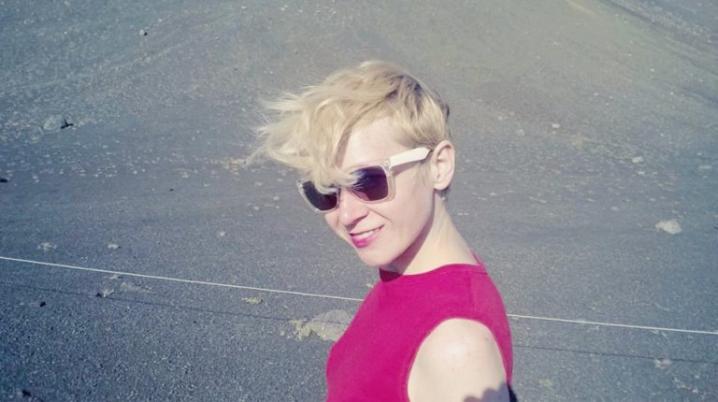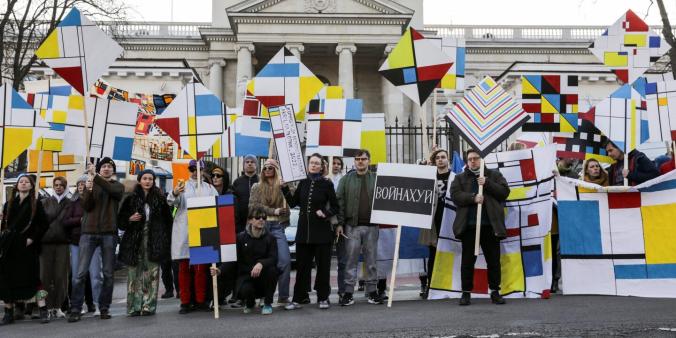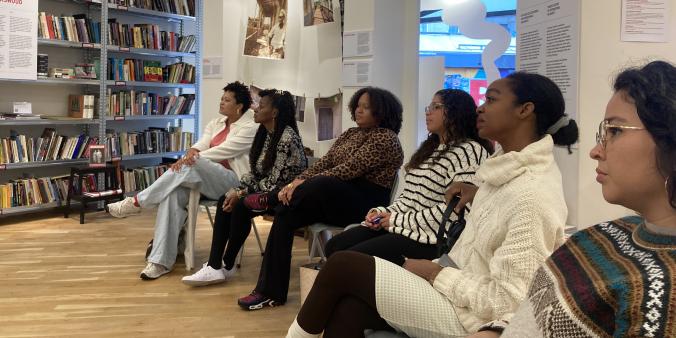
Our Europe+Heritage advisor, Jacomine Hendrikse, has been a board member of Platform Klimaat en Erfgoed (Climate and Heritage Platform) since 2023. The board consists of heritage professionals from various disciplines who, on their own initiative, based on their commitment and concerns, founded the Platform.
Last year, with support from DutchCulture, the Platform published a Dutch and English publication titled Heritage in a Changing Climate, featuring interviews with six Dutch and European heritage professionals about the impact of climate change on their work. This series is continued with European interviews; more will be published later this year.
This is the first interview in a series with heritage experts from Europe, raising their voices about the impact of the climate crisis on heritage. Their international perspectives are a follow-up on the interviews with mostly Dutch heritage professionals that have been published on our website in the past years, as well as in the publication Heritage in a changing climate.
Ewa Chomicka is head of the Laboratory of Museum Practices at the POLIN Museum of the History of Polish Jews in Warsaw. In 2019, together with the Climate Collective, she co-authored a climate manifesto for museums as part of the We Are Museums conference. She is a co-founder of the Museums for Climate group and the Culture for Climate collective.
Could you introduce yourself and tell us in what way you are involved in the topic of climate change and heritage?
"I work at the intersection of institutional practice and grassroots activism: on the one hand, I am part of the POLIN Museum of the History of Polish Jews, where I lead the Laboratory of Museum Practices (a unit dedicated to developing collaboration between the museum and contemporary artists, as well as interdisciplinary initiatives that combine contemporary art, research, and activism) and coordinate the Green Team, working to embed sustainability into the institution’s operations. On the other hand, I co-create the Culture for Climate collective, an independent grassroots initiative that supports systemic change in the cultural sector of Poland through climate advocacy, education, and collaboration. This dual perspective – within a museum and alongside a community of independent cultural workers – allows me to navigate between institutional frameworks and more experimental, activist approaches."
"I believe that meaningful climate action in the heritage sector requires both: internal transformation and external pressure, imagination, and solidarity. For me, heritage is not only about preserving the past but also about taking responsibility for the future. Climate change urges us to rethink the role of cultural institutions – not just as guardians of memory, but as active agents of ecological and social change."
In what way do you already experience the impact of climate change on heritage (in your work)?
"The POLIN Museum is a relatively young institution housed in a modern building that opened in 2013. As an urban, indoor space, it is not yet directly threatened by climate-related disasters. However, we are increasingly experiencing the indirect effects of climate change, such as heavy rainfall and prolonged heatwaves – phenomena that until recently were uncommon in Poland. These conditions challenge our infrastructure and cooling systems and raise important questions about how to care for people while also caring for the planet, all in an energy-efficient way. Like many other young cultural institutions, we face the challenge of reducing our environmental footprint, increasing awareness among our staff and visitors, and collectively caring for the green urban spaces that surround the museum.
I sense a growing urgency within the cultural sector to respond in meaningful ways – not only by raising awareness, but by transforming our operations, relationships, and priorities. We are continuously seeking solutions to make our practices more environmentally friendly, ensuring that our collections, exhibitions, and programs are developed not only ethically in relation to people, but also with care for the environment and the sustainable use of natural resources."
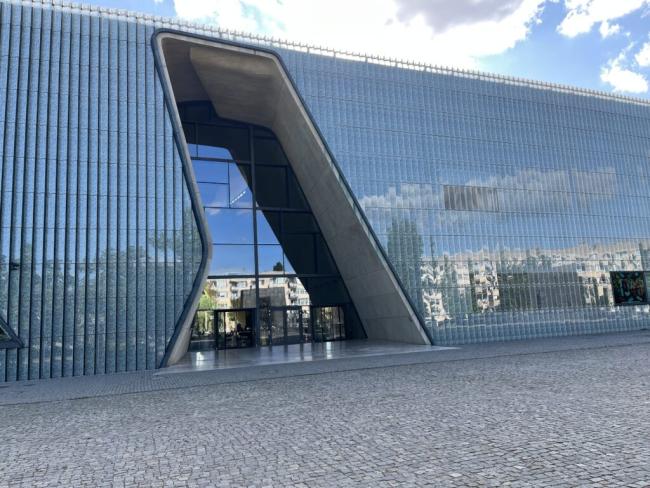
What should be done to limit the possible damage of climate change on heritage?
"In Culture for Climate, a grassroots collective which I co-create, we emphasize that culture and art are not environmentally neutral. While they produce narratives, shape discourse, and influence awareness and attitudes, they do so by drawing on natural and material resources. Their operations are deeply entangled in the flow of goods and commodities, characterized by high mobility, and often marked by overproduction and excessive resource use. Therefore, like all other spheres of human activity, culture and art must undergo an ecological transformation – one driven by responsibility for the future, and a commitment to solidarity and collaboration."
"Cultural and artistic institutions, including those dedicated to heritage, have a particularly important role to play in this process. As spaces of “long duration,” with strong public trust and wide social reach, they have the potential to become key agents in fostering ecological awareness and motivating environmental action. They can offer platforms for public debate where diverse voices and climate initiatives are heard, encourage critical reflection on prevailing systems, experiment with alternative models of social organization, and actively shape environmental education from the ground up. Through exhibitions, performances, educational programs, and community engagement, the cultural sector holds the power to support meaningful change by promoting new ways of thinking and living.
Fulfilling this potential, however, requires a deep internal shift—a greening of everyday practices and operational routines. Raising awareness and “talking about ecology” must go hand in hand with efforts to make cultural and artistic production more sustainable. Ecology – as a value system guiding decisions and actions – should become a core element of institutional programming and policy."
Do you see a role for heritage in climate adaptation or climate mitigation?
"I see a vital role for institutions engaged in culture and the arts, including those working with heritage. Coming from an activist background, we’ve been especially focused on exploring the topic of mitigation. Speaking about adaptation, we approach it not only in relation to the climate crisis, but as a response to the broader context of current polycrises—including the pandemic, wars, the global economic crisis, the global mental health crisis, and more – and as a way of asking what kind of narratives to create, how to respond and act, with care for ourselves and others, under such conditions.
In 2021, we published a digital guide created by cultural practitioners in collaboration with environmental experts. Written from the perspective of Polish cultural workers, the guide is intended to support those active in the cultural sector—taking into account the local conditions of how culture and art function in Poland—in implementing pro-environmental changes. We approach a global problem from a local field. The recommendations are developed from the standpoint of cultural institutions – the most complex organizational form in the sector – and they cover both “soft” areas, such as relationships and creativity, and “hard” ones like infrastructure, administration, budgeting. As such, they are equally relevant for independent practitioners and informal collectives."
"That’s why, in relation to both adaptation and mitigation, we see culture, heritage, and art as valuable resources for guiding us through crisis and change—grounded in ethics, creativity, and inclusivity.
It is especially important to us that we approach cultural ecology holistically – we don’t limit the ecological conversation to typical actions like waste sorting or saving energy. We see an institution as a complex organism in which, through the lens of ecology, all areas are interconnected and should support one another. This includes infrastructure, daily practices, care for surroundings, digital ecology, programming, event production, finances, institutional policies, partnerships, communications, staff well-being, etc. We also emphasize that while ecological transformation in culture may seem complicated, many solutions can be rooted in simple habit changes. That’s why our guide dedicates the most space to first steps – highlighting that the goal is not perfection, but gradual action where we have influence.
We are fully aware that the climate crisis is a systemic challenge, and we don’t want to place excessive responsibility on individuals or single institutions. But we do want to support practices of care for the planet and encourage action within the realms of our agency."
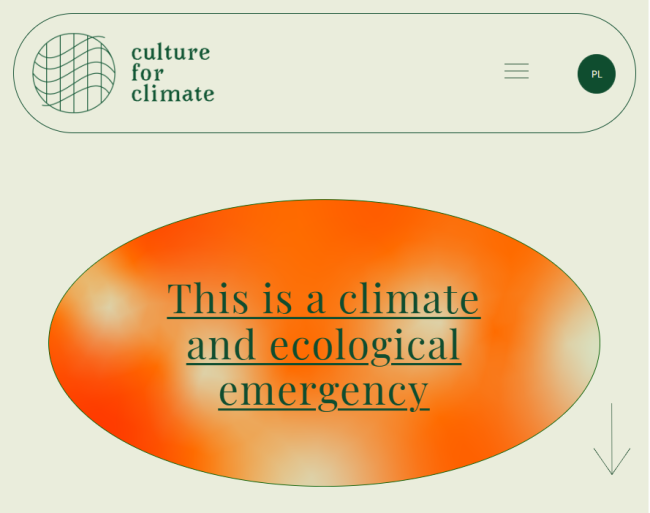
What are your expectations for the impact of climate change on our European heritage in the future?
"I tend to think about the climate crisis primarily in local or global terms, rather than specifically in the context of European heritage. The global economy – driven by the exploitation of both human and non-human resources – degrades the quality of water, air, and food across the planet, while deepening economic, class, and racial inequalities. Rising sea levels, floods, wildfires, extreme weather events, and erosion poses serious threats not only to Europe, but to communities worldwide. The climate crisis triggers further crises, while also driving political, social, and economic change. This is a shared challenge for all of humanity.
From a heritage perspective, the challenge will go far beyond the direct impact on physical sites or objects. Displacement of communities and the loss or disruption of intangible cultural practices tied to specific places, seasons, or ecosystems will become increasingly common. The erosion of traditional knowledge systems is likely to accelerate. A break in continuity may give rise to challenges related to personal and collective identification, which in turn can lead to political tensions. All of this will call for new definitions and redefinitions of identity, ownership, rights, responsibility, and justice."
Is there anything else you would like to add?
"At Culture for Climate, we always emphasize that when discussing the challenges of the climate crisis in the culture and arts sector, employee well-being must be explicitly acknowledged and taken into account. Cultural sector workers, driven by their commitment and passion – and often inclined to take on too much – are particularly vulnerable to burnout. In a sustainable institution, care for the environment must go hand in hand with care for people. The way work is organized, the values the team is built upon, and how problems are solved and decisions are made – all these elements contribute to a healthy work ecosystem. Fair employment practices, decent wages, equality policies, avoiding overproduction, and fostering a culture of mutual respect and responsibility form its foundation."
